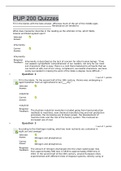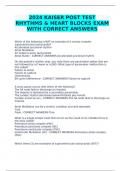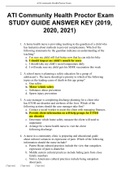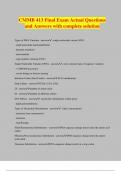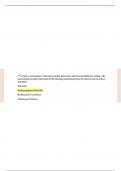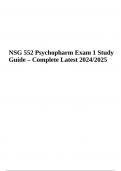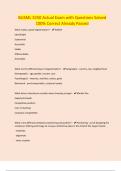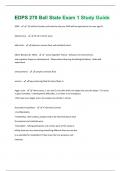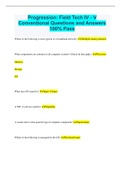Giddens: “The Politics of climate change”
- We need united efforts to deal with threats created by climate change
- The impact of climate change might be bigger and more dangerous than the majority of the
scientific community thinks
- Most citizens are less worried about climate change than they used to be. This is because:
→ fossil fuel companies deploy disinformation
→ the findings on the dangers of climate change are filtered through science which has an impact
on public opinion
→ free rider problem
→ issues around economic development in poorer countries
→ Giddens’s paradox: it is hard for the public to accept climate change as a reality because no
previous generation had to deal with it. There are other repeated problems in the world and they
take precedence. There is no past experience to draw on when it comes to climate change
There are many views on climate change:
1. Climate change skeptics (humans can’t do much about it)
2. Green movement (the earth’s ecosystem is fragile and human activities damage them)
3. Nature as a wild beast (climate change policy is about containing risk)
4 main features to incorporate to make an effective framework of international law for enforcing climate
change policies:
1. Make climate change be recognized as an immediate issue (overpopulation overlapping with
climate change)
2. Bilateral and regional agreements are likely to be more important than any universal agreements
→ the UN is weak
→ power blocs dominate
3. The power of fossil fuel companies must be changed on a global level
4. Local activism can have an immediate global impact
→ transforms the nature of immigration and mobility
→ cities can play a larger role
Lintsen: “The Historical Challenge”
- Wars, working conditions, living standards and economic reasons play a role in poverty levels
- Extreme poverty: lower purchasing power than 1.90 dollars a day, but minimum budgets change
annually
- Banishing extreme poverty is a historical challenge
→ involves trade-offs, demands perseverance and patience
Well-being and the Normative Point of Departure
,Four themes of quality of life:
- Prosperity
- Personal characteristics
- Natural environment
- Institutional environment
Results after normative framing:
- After an initial decline of quality of life, a reversal sets in after 1870 with an increase stronger
than the growth of the GDP
- The rate of increase in quality of life declines after 1950
- It increases again at the end of the 20th century, but lags behind economic growth
Around 1850: Extreme Poverty in Context
- One key issue of well-being is to get rid of extreme poverty
How to solve it:
1. More equitable distribution of wealth
2. Necessary institutions to consolidate the struggle for equality
3. Economic growth
4. Use of innovation
5. Use of natural capital (improved infrastructure)
6. New constitutional relationships
1850-1900: Manifold Dynamics
- Economic force as the main force behind the assault on extreme poverty
- Extreme poverty increased because agriculture and a small farming and urban elite profited from
the liberalization of international trade
- Modernization of the economy and growing welfare become linked (1870)
→ modernization associated with the revolution in the food supply chain (the mass flow of bio
raw materials) i.e. artificial fertilizers
- After 1870, Dutch economy becomes dependent on fossil fuels
- The supply chain of mineral raw materials
- Many organizations advocated for modern technology (organizations, politicians,...)
→ a new generation of high skilled workers, trade schools, etc.
Around 1900: Poverty Defined Anew
- Living standards have changed
- Labor had to contribute to personal development
- Improved working conditions
- Inculcating bourgeois values
- Definition of poverty directed at labor and housing
- New values around nature and environment (little political influence)
1900-1960: The Historical Challenge Realized
, - The question on legislation about workers’ rights
- Trade unions & employers’ associations as the pillars for workers
- Social inequality decreased
- The world wars and the economic crisis were a setback for tackling poverty
- Food security
- Exploitation of natural capital
- Intervention by the state in the chains of production, consumption and use
- New techniques of creating new food (processing)
- Increase in mass flows in supply chains
- Multinational companies
- Mass production → mass consumption
- Larger middle class
→ + Protest generation
- Most popular issue was water pollution
→ discharges of urban waste
→ use of agricultural chemicals
→ household detergents
- Only a small amount of people mobilized for movements concerning the environment
Around 1960: Well-being, sustainability and economic growth in balance
- Fast-paced process of reconstruction after WW2
- Issues: housing shortage, securing of the vulnerable Delta
- Natural capital faring: creation of the welfare state was only possible because of the exploitation
of natural capital
- Higher emissions of CO2 and SO2 because of the use of artificial fertilizer
- Material wealth increased substantially
- Individual quality of life increased
- Reasonable economic growth
- Increasing social equality
- Strong population growth had to be accommodated
→ industrialization as a strategy
1960-2015: Well-being, Sustainability and Economic growth out of balance
- Growth in well-being is out of balance with economic growth
→ Rapidly changing relationship with the natural environment
→ norms regarding nature changed
→ the idea that the natural environment is suffering took root
→ norms for exploiting the environment were violated
→ massive unemployment and wage moderation in the 1980s and 2008
- Social inequality in terms of income and wealth increased
- Increase in consumption → health and educational levels increase
- Decline in safety and democracy
→ process of depilirization
→ social agendas propagated by elites
, → large measures of social control
→ religion no longer provided a fixed normative framework
→ political party-formation on the basis of traditional ideologies became less important
→ process of individualization (decline in social cohesion and control) → crime rates increase
- Increase in CO2 emissions
→ economic growth
Around 2015: Sustainability as New Historical Challenge
- Considerable increase in material welfare
- Well-being lags behind
- Sustainability is compromised
- To what extent does economic growth contribute to quality of life?
- Road to sustainability: how to achieve it?
→ the preservation of natural capital in the Netherlands has the bleakest outlook
- Four capitals must be safeguarded for future generations:
1. Economic capital
2. Social capital
3. Human capital
4. Natural capital
3 main problems:
1. Energy & climate
2. Exhaustion of raw materials
3. NL is still not compliant with EU environmental laws
→ natural habitats and biodiversity are still under considerable pressure
The welfare paradox
- General level of well-being is high but satisfaction with life has declined: Welfare paradox
- Four factors have played this role:
1. Social inequality
2. Insecurity and vulnerability
3. Changing preferences
4. Channeling the societal debate
→ civil society & the government connection
→ wishes in society don’t get communicated to the political level because of elites
→ process of de-pillirisation
→ segment of the electorate that does not feel heard

